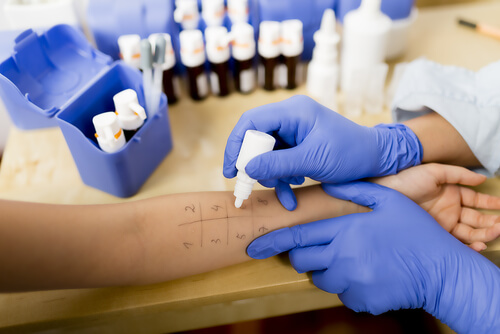 Being at the mercy of seasonal allergies can grind anyone’s life to a sudden halt, especially if you don’t see it coming. Some people try and cope but enduring the overwhelming wave of discomfort for chunks of the year can be exhausting.
Being at the mercy of seasonal allergies can grind anyone’s life to a sudden halt, especially if you don’t see it coming. Some people try and cope but enduring the overwhelming wave of discomfort for chunks of the year can be exhausting.
Taking an allergy test is a step in the right direction. This form of reconnaissance will tell doctors everything they need to know about how your body reacts to different allergens. In order for it to go off without a hitch, you’ll need to know what not to do before your allergy test.
How Do Allergy Tests Work?
Allergy tests work on a very simple principle. Not knowing what specific your body should avoid means you’re at the mercy of any number of random allergens. Through process-of-elimination your doctor can expose you to different substances like ragweed, mold, foods and pollen.
3 Types of Allergy Tests
Scratch Tests
Scratch tests are pretty simple. Your doctor will mark a large part of your skin with a grid and then cover the area with a drop of allergen extract. They’ll then prick the area (but not deep enough to draw blood) and wait.
Patch Tests
A patch test involves using a patch of allergen and putting it on your body for up to two days to see if there’s a reaction.
Intradermal Tests
An intradermal test involves injecting just under your skin to see if the small amount of allergen will trigger anything.
What to Avoid Before an Allergy Test
It’s best to show up to your appointment with more than an hour of time available as the doctor has to be quite thorough. More importantly, you need to bring a list of every medication you’re currently taking. Below is a list of things you should definitely avoid for up to 3 days before your test:
- Antihistamines
- Antidepressants (Tricyclic ones, check with your doctor before stopping)
- Anti-inflammatories (Advil, Aspirin, Alka-Seltzer, etc)
- Beta-Blockers (Check with your doctor)
- Nasal Sprays
- Steroids (Oral, Dermal, Injectable, Nasal)
- Tranquilizers or Muscle Relaxants
- Vitamin C supplements
Most preoperative appointments require you to avoid scented products like perfume, cologne and lotion and it’s the same for your allergy test. By simply booking an appointment, you’re already well on your way to getting back to living life without having to look over your shoulder, worried about when your allergies will strike.
Share Tweet Email If you’ve been looking for a permanent treatment for snoring that doesn’t involve surgery or sleeping with a medical device, Elevoplasty® treatment is an option you may wish to consider. What Is Snoring? Snoring is the rattling sound which occurs when a patient breathes in air and the relaxed tissues of the throat vibrate. […]
Share Tweet Email It’s summertime, and the living is sneezy if you’ve got allergies. You might be tempted to lock yourself in an air-conditioned room for the next three months. Turning into a hermit isn’t the answer. You can enjoy an allergy-free summer – read on for more details. Track Your Triggers Allergies are caused […]
